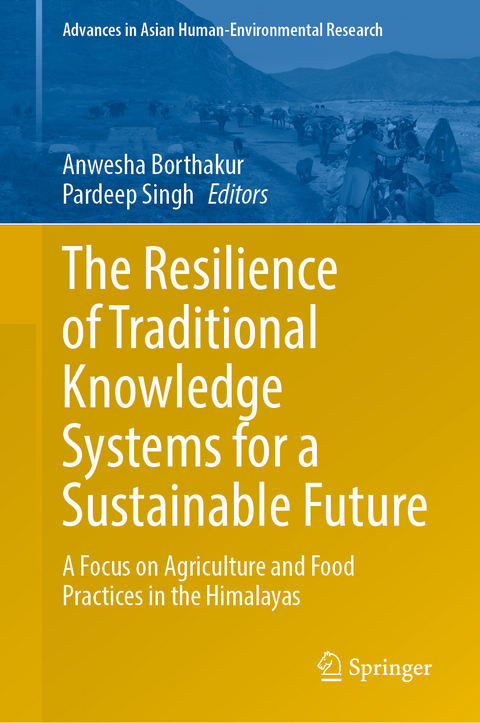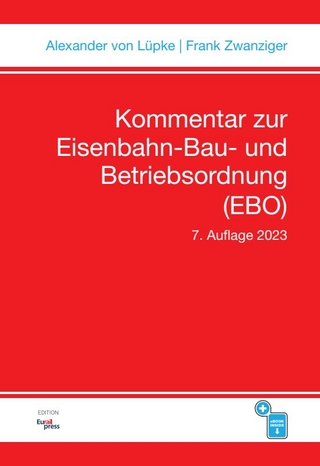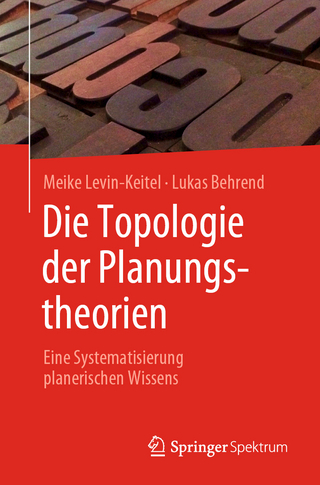
The Resilience of Traditional Knowledge Systems for a Sustainable Future
Springer International Publishing (Verlag)
978-3-031-56857-2 (ISBN)
- Noch nicht erschienen - erscheint am 30.12.2024
- Versandkostenfrei innerhalb Deutschlands
- Auch auf Rechnung
- Verfügbarkeit in der Filiale vor Ort prüfen
- Artikel merken
This book is an effort to draw attention to the resilience of traditional knowledge systems for a sustainable future in the Himalayas with a particular focus on agriculture and food practices. Through examples from the region, it underscores the importance of these practices in navigating contemporary global environmental challenges. The Himalayan region, known for its socio-cultural diversity and unique agricultural ecology, emerges as a major hotspot of climate change. Therefore, acknowledging and recognizing the lived experiences of the locals along with their traditional knowledge associated with agriculture and food systems becomes imperative for devising adaptation and mitigation strategies amidst the unfolding environmental and climate crisis.
Drawing upon insights from local communities and experts deeply rooted in the Himalayan context, this book not only documents traditional agricultural and food systems but also sheds light on the pressing anthropogenic challenges threatening their sustainability. We believe that research and documentation of traditional knowledge practices of the local and indigenous communities are essential for tackling the current and projected global environmental challenges.
This book advocates for a holistic approach to addressing both current and future global environmental challenges. It serves as a timely call to action for researchers, policymakers, and practitioners alike.
Dr. Anwesha Borthakur is presently a Landhaus Fellow at the Rachel Carson Center for Environment and Society, Ludwig Maximilian University of Munich in Germany. She is an affiliate with the University of Leuven (KU Leuven) in Belgium from where she completed her Marie Sklodowska-Curie Postdoctoral Fellowship in 2021. Prior to that, she obtained her PhD in science policy from Jawaharlal Nehru University (JNU), New Delhi, India. She has published over 40 research articles/book chapters in peer-reviewed, indexed journals/books and edited volumes on topics associated with environmental sustainability. Her broad areas of research interest include waste governance, electronic and textile waste, traditional ecological knowledge, public engagement for environmental sustainability and scientometric analysis.
Dr. Pardeep Singh is an Assistant Professor at the Department of Environmental Studies, PGDAV College, University of Delhi in New Delhi, India. He obtained his PhD from the Indian Institute of Technology (Banaras Hindu University), Varanasi. He was selected as a Young Scientist by the Department of Science and Technology (DST), India for the BRICS Young Scientist Conclave held in Durban, South Africa. His research interests include waste management, wastewater treatment, water scarcity and global climate change. He has published more than 75 research papers/book chapters in international journals/books in the field of environmental science. He has also edited more than 40 books with various international publishers including Springer Nature, Elsevier, CRC Press and Wiley.
Part I: Traditional Knowledge Systems: Agriculture And Livelihood.- Traditional And Indigenous Knowledge And Technologies For Sustainable Agriculture In The Himalayas.- Traditional Farming In The Indian Himalayan Region: Preserving Agro-Biodiversity And Future Food Security.- Traditional Agri/Horticultural Crops, Farming Practices And Conservation In The Himalayan Region.- Shifting Cultivation: An Analysis Of Jhum Cultivation In Karbi Society Of Assam.- Relevance Of Traditional Knowledge For Sustainable Agriculture In The Indian Himalayas Region.- Part II: Food For A Sustainable Future: The Resilience Of Traditional Himalayan Food Systems.- Mountain Cuisine In A Changing Climate: The Resilience Of Traditional Himalayan Food Systems.- Bearing The Brunt Of Climate Change In Eastern Himalayas: Conserving The Traditional Food Systems Of Nagaland, India.- Part III: Challenges In The Himalayas: Impacts On Its People, Ecology And Knowledge Systems.-Traditional Knowledge Systems In The Himalayas: Why Moving Away From Biomass Cooking Fuel Is So Difficult?.- Unorganized Tourism Practices And The Allied Challenges In The Himalayas.- Unveiling Anthropogenic Environmental Burdens Impacting Ecosystem Services In The Himalayas.- Part IV: The Possible Way Forward.- The Himalayan Ecosystem And Development Paradigm: A Sustainability Perspective.- Revitalizing Roots: Harnessing Traditional Socio-Cultural Institutions For Sustainable Development Of The Himalayas.
| Erscheint lt. Verlag | 30.12.2024 |
|---|---|
| Reihe/Serie | Advances in Asian Human-Environmental Research |
| Zusatzinfo | XI, 24 p. 5 illus. |
| Verlagsort | Cham |
| Sprache | englisch |
| Maße | 155 x 235 mm |
| Themenwelt | Naturwissenschaften ► Geowissenschaften |
| Sozialwissenschaften ► Soziologie | |
| Schlagworte | Biodiversity conservation • Himalayan ecosystems • Himalayan Food Systems • Himalayas • Nagaland • Resilience • Sustainable Development Goals • sustainable future • traditional knowledge systems |
| ISBN-10 | 3-031-56857-5 / 3031568575 |
| ISBN-13 | 978-3-031-56857-2 / 9783031568572 |
| Zustand | Neuware |
| Haben Sie eine Frage zum Produkt? |
aus dem Bereich


